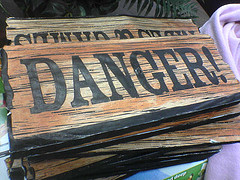 These days, I am hip deep in two domains of the non-profit world.
These days, I am hip deep in two domains of the non-profit world.
By day, I toil in the vineyards of the Massachusetts Medical Society, a professional membership association. By night (and weekends), I am volunteer co-president of the Needham Education Foundation, a charity in Needham, Mass., the Boston suburb where I live.
NEF funds innovative grants created by teachers and parents for our public school system. We raise money from local residents and businesses. Since 1991, we’ve funded more than 250 grants for more than $1 million. Our predecessors have managed the brand really well, so we enjoy a great reputation in our town.
Like most nonprofits, we can do this because our sustaining fund has enjoyed many good years. But it’s taken quite a hit in the last year – roughly in line with the rest of the market. While our viability is not at all threatened, the dangers of today’s markets sharpened our thinking as nothing else could.
Danger is also an opportunity to re-align stakeholders on a common mission and vision, and to dispense with the urban legends that sprout and thrive in any organization.
Last week, we had our monthly board meeting. It occurred within days of 700-point market drops and 900-point gains, amid uncertainty and fear about what’s coming next. And fortunately or not, it coincided with our annual decision of how much we will spend this school year on grants.
It was a robust discussion – not feisty, but lively. Opinions were not uniform. Soon I realized that while we were talking about numbers, we were really talking about our purpose: 1) What are we here for? 2) How does this impact our fiduciary duty to protect the organization’s future?
Clearly, each end of the spectrum is off the table. We’re not in the business to accumulate money, so spending nothing isn’t the answer. And while it might make people happy if spend everything now, we can’t. We will be needed for many years, and we intend to be in this for the long haul.
So where on the spectrum should we land? You could argue that the community needs us to be more generous than ever; if you don’t spend money during a rainy day, why are you keeping it? Or, you could argue that this market downturn is so different from the past, it’s better to be generous, but careful too.
Which future should we plan for? In the last century, two long market slumps were killers. The market crashed in 1929 and didn’t recover for 36 years. The market also slumped badly in 1973 and didn’t recover for 10 years.
If we plan too carefully, we underserve our mission and our stakeholders suffer needlessly. If we’re too optimistic, we risk our future.
Whether you serve a membership organization, a trade group, or a charity, these questions should keep you awake at night. If you come up with answer, don’t get complacent. Life has a way of humbling even the best-laid plans.
Footnote: Our NEF board chose the generous-but-careful route for now. But we will be watching things closely.